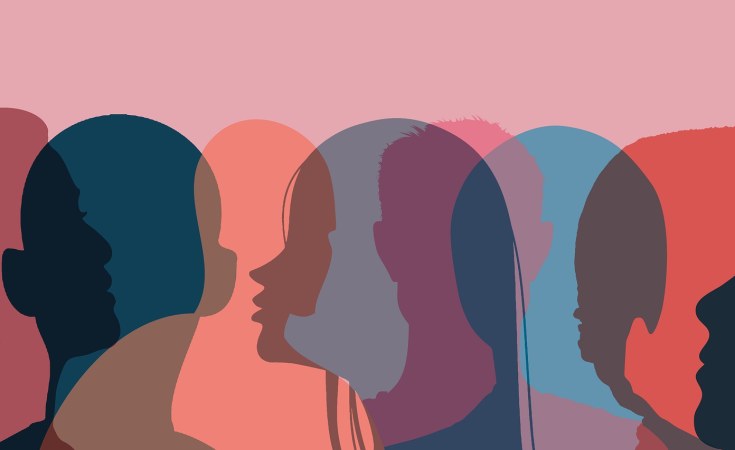
Bayan Abu Salameh [Bayan Abu Salameh]
Anjuman Rahman
May 1, 2022
When Bayan Abu Salameh enrolled in a mechanical engineering degree, she was one of only four women in an intake of more than 70 students at Birzeit University, north of Ramallah.
Her career choice had previously encountered doubts among her schoolteachers and peers, who questioned whether it was suitable for a girl or even realistic.
Despite the discouragement, she persevered.
The 25-year-old from a small village near Jenin called Faqua was awarded the Chevening Scholarship, funded by the British government, to study at Queen Mary University, where she successfully designed and analysed what she hopes will be the first Palestinian cube satellite and named it Palestine 1.
"It was around the age of 15, when I read the Brief History of Time by Stephen Hawking, when I knew that this is what I want to do for the rest of my life," says Bayan.
Inspired by Hawking's discoveries, Bayan wanted to create a machine that helps unearth more secrets of the wider universe. It was that early longing to explore and study space that charted her degree choice.
"But when I would tell my university classmates in Palestine that I want to study space, they'd laugh and make fun of me saying 'yeah because we have NASA in Palestine.' They made it sound far away, unreachable. But I did my research, I knew what I was talking about," says Bayan.
"It was something impossible for Palestinians to comprehend at the time, so I came to London, but it was during lockdown, unfortunately. And then I started my research about cube satellites."
Cube satellites, explains Bayan, are miniature satellites deployed into space for different missions, including the study of climate change, urban growth and water sources desertification.
The United Arab Emirates, she notes, launched its second cube satellite from the International Space Station last year, which was designed and built by Khalifa University of Science and Technology students at Yahsat Space Lab.
"It's a great indication of the country's academic competence, which I envision for the future of Palestine," she says.
"Palestinians deserve representation in space, we have great minds! The MENA region is facing a lot of problems and we need scientific-based solutions for such issues. However, it was very difficult to conduct research in lockdown because I had limited resources from the laboratories and library."
Moreover, the threat of eviction of Palestinians in Sheikh Jarrah had unfolded at the time, which sparked weeks of violence last year, culminating in Israel's brutal 11-day military assault on the Gaza Strip that killed 230 Palestinians, including 65 children.
"I saw so many friends of mine getting arrested. Watching footage of my sweet friends getting attacked by Israeli soldiers made me cry for hours. I was here feeling helpless and continuously speaking to my mum and asking for updates."
Despite the psychological pressures hitting hard at the time, the events in Palestine made her more determined to focus on her thesis and exams, in hopes she will succeed and make her people proud.
"I did it," she says with a large smile. "I managed a structural design of the cube satellite and wrote my thesis, which I defended and received a distinction for it."
"That was the happiest day of my life because what I've been working on actually worked!" She announced her achievement on Facebook and shed light on the potential benefits of launching a Palestinian cube satellite into space one day. The news went viral.
Suddenly, Palestinians everywhere shared the same dream. Along with Bayan, they want Palestine to reach space.
Having recently been accepted into Imperial College London to pursue her PhD in Mechanical Engineering, Bayan says she will continue working on the Palestine 1 project.
She also recently launched a crowdfunding campaign to raise the funds required for the PhD programme and the project, which she is determined to keep full ownership of.
"I don't want anyone taking the opportunity to turn this project into political propaganda, I just want it to be an academic project to benefit people academically worldwide."
"It's still a new industry and people are trying new ways to develop the structure of satellite cubes because currently, out of 100 cubes, almost 49 cube satellites fail. So, what I'm attempting to do with the Palestinian cube is modify the structure and efficiency of it, which will minimise the failure."
Palestine will benefit greatly from this project, notes Bayan. In Birzeit University for instance, students studying urban planning will have access to raw aerial data that will allow them to understand and excel in their field of study, she explains.
"It will also help the MENA region in general, not just Palestine," she adds. "A major problem threatening the Middle East right now is climate change. I've been following climate change conferences worldwide and, in every conference, they repeat that they need new western foreign policies to combat the problems of climate change."
However, foreign policies shouldn't be imposed on the MENA region as if they represent the most ideal solution to climate change. Instead, explains Bayan, a scientific basis from outer space – such as satellite imagery – should be utilised to identify the most appropriate response to solving the rising climate change problems.
Around the world, only 18 per cent of women in college and universities are pursuing studies in science, technology, engineering and mathematics, compared with 35 per cent of men, according to the UN.
"For women in engineering in the Middle East, it's not only about proving to themselves that they can succeed in it, it's also about proving it to everyone else. And that means twice the effort than a male engineer because every step of the way, she's being reminded that she does not belong in this field," says Bayan.
"I was one of four females in a classroom of more than 70 and had to face sexist comments from my professors who believed that I did not belong there. A professor of mine even told me that I'd end up hanging my certificate on a wall and not doing anything with it."
This needs to change, she says, emphasising the need for a conscious effort to eliminate this gender bias and encourage more girls to explore STEM-related courses.
"My motivation is to create a world where my daughter and females of the future will be comfortable studying engineering."
"Whilst also trying to minimise the gap between Palestine and space, I aim to establish a network of women in STEM, where we can come together and learn from each other's expertise to create magnificent projects. We need to stop thinking that space is so far away, we have the potential to reach there and beyond."







.jpg)

 '
'
